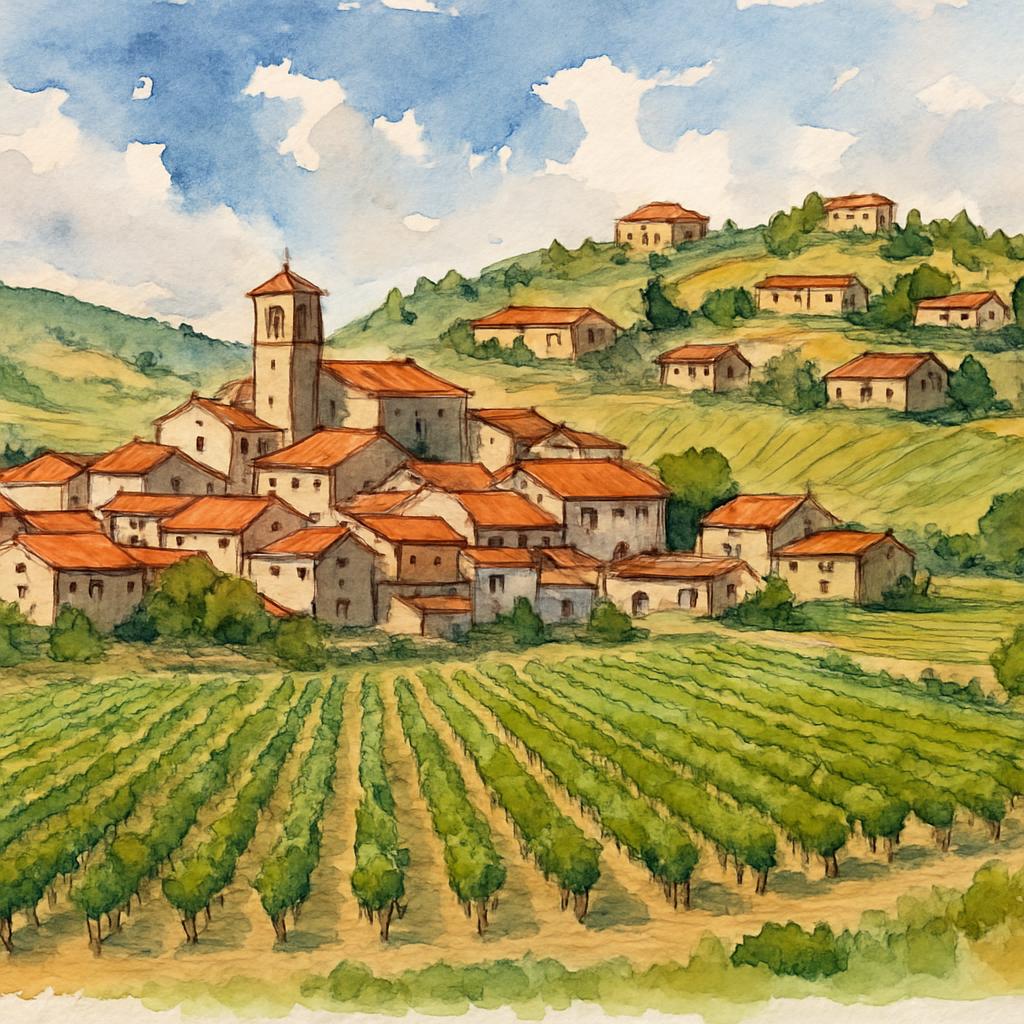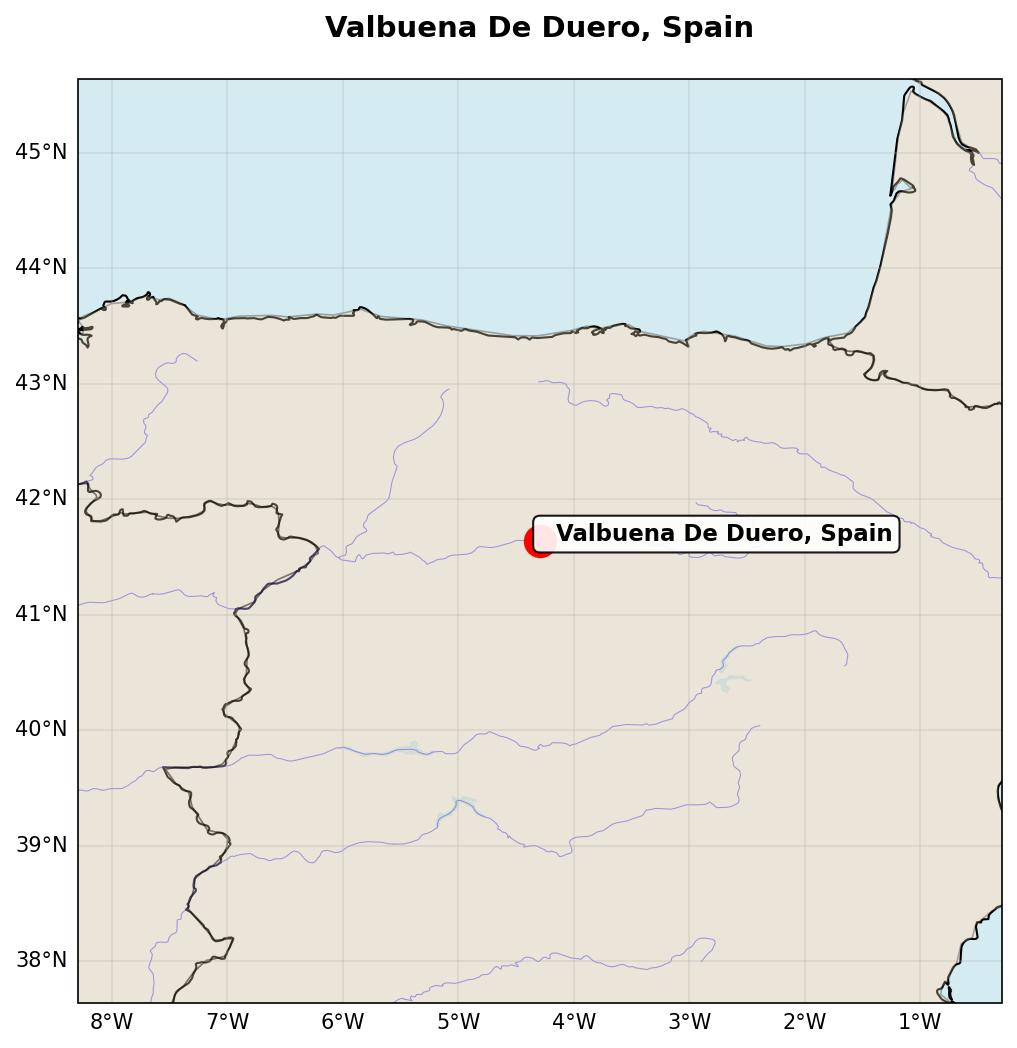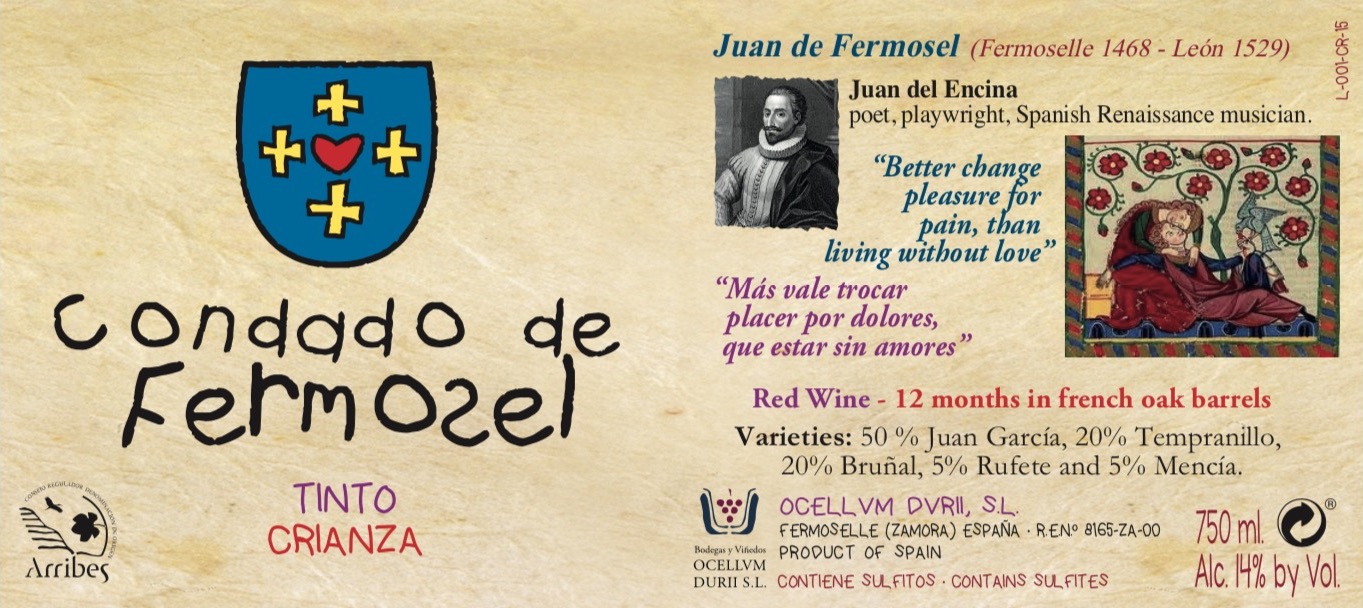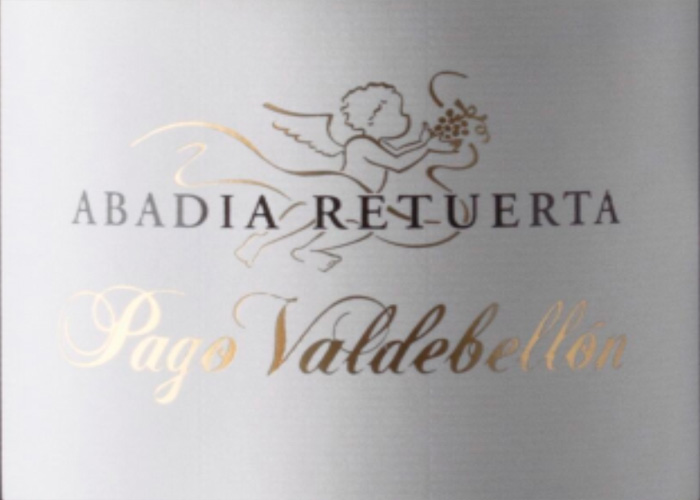Terroir of Valbuena de Duero
The Ribera del Duero region, home to Valbuena de Duero, is defined by its unique terroir and climate. Vineyards thrive on high river terraces and gentle hills, where calcareous clays, loams, and limestone gravel create low-fertility soils. These conditions push vines to develop deep roots, leading to intensely flavored grapes. Higher elevations around Valbuena benefit from ample sunlight and cooling breezes, perfecting grape ripening.
The climate is distinctly continental with Mediterranean touches, marked by hot, dry summers and cold winters with frequent frosts. Rain mostly falls during spring and autumn. The altitude and significant day-night temperature differences allow grapes to ripen slowly, balancing rich flavors with refreshing acidity. This produces robust red wines with ripe fruit flavors and firm tannins, complementing the village's heritage of producing age-worthy Tempranillo and other varietals.
Notable Wineries in Valbuena de Duero
The Ribera del Duero region, particularly around Valbuena de Duero, boasts a rich tapestry of notable wineries that showcase its winemaking excellence. Among the standouts is Vega Sicilia, a historic estate established in 1864, renowned for its iconic Tempranillo-led wines, Único and Valbuena, celebrated for their depth and aging potential.
The Alión winery, a modern endeavor by the Álvarez family, focuses on pure Tempranillo, offering a contemporary take that complements Vega Sicilia’s traditional style. Nearby, Matarromera emphasizes sustainability in its production of Tinto Fino and other varietals, crafting wines from approachable Crianza to premium offerings.
The area also hosts cooperative and family-run bodegas like Abadía Retuerta, Pago de Carraovejas, and Tinto Pesquera, all contributing to the region's esteemed wine reputation.
Sustainable Winemaking in Valbuena de Duero
Ribera del Duero stands at the forefront of sustainable wine practices, reflecting its commitment to environmental responsibility. With irrigation strictly regulated, many vineyards rely on natural rainfall, preserving water and enhancing grape intensity. Cover crops between rows reduce erosion and enrich soil health, while compost and organic mulches keep moisture intact, supporting biodiversity.
Integrated pest management minimizes chemical use, favoring mechanical or biological methods. Some vineyards apply organic or biodynamic practices, further ensuring ecosystem balance. Wineries embrace energy efficiency through solar thermal systems, LED lighting, and gravity-flow designs, alongside water conservation efforts like rainwater capture.
Industry initiatives focus on adapting to climate change by testing resilient plant materials, aiding growers in maintaining quality amid rising temperatures and water challenges. This dedication to sustainability enhances Ribera del Duero's reputation for producing robust, age-worthy wines while preserving its natural heritage.
Wine Tourism in Valbuena de Duero
Wine tourism in Ribera del Duero offers rich experiences rooted in tradition and natural beauty. Visitors can explore the Ribera del Duero Wine Route in Valbuena de Duero, where vineyards offer tours and tastings, sometimes directly from the barrel. The area showcases the renowned Tempranillo grape alongside Albillo Mayor and Garnacha Tinta, with wines ranging from Joven to Gran Reserva.
In addition to wine, the region's historical and culinary offerings enhance the experience. Guests can stay at the luxurious Castilla Termal Monasterio de Valbuena, a 12th-century monastery turned hotel, and enjoy local dishes like roast lechazo paired with robust red wines. September's grape harvest and August's local celebrations provide seasonal highlights. Outdoor activities such as vineyard walks along the Duero River, cycling, and birdwatching add to the vibrant atmosphere, making Ribera del Duero a destination of both cultural and natural allure.




